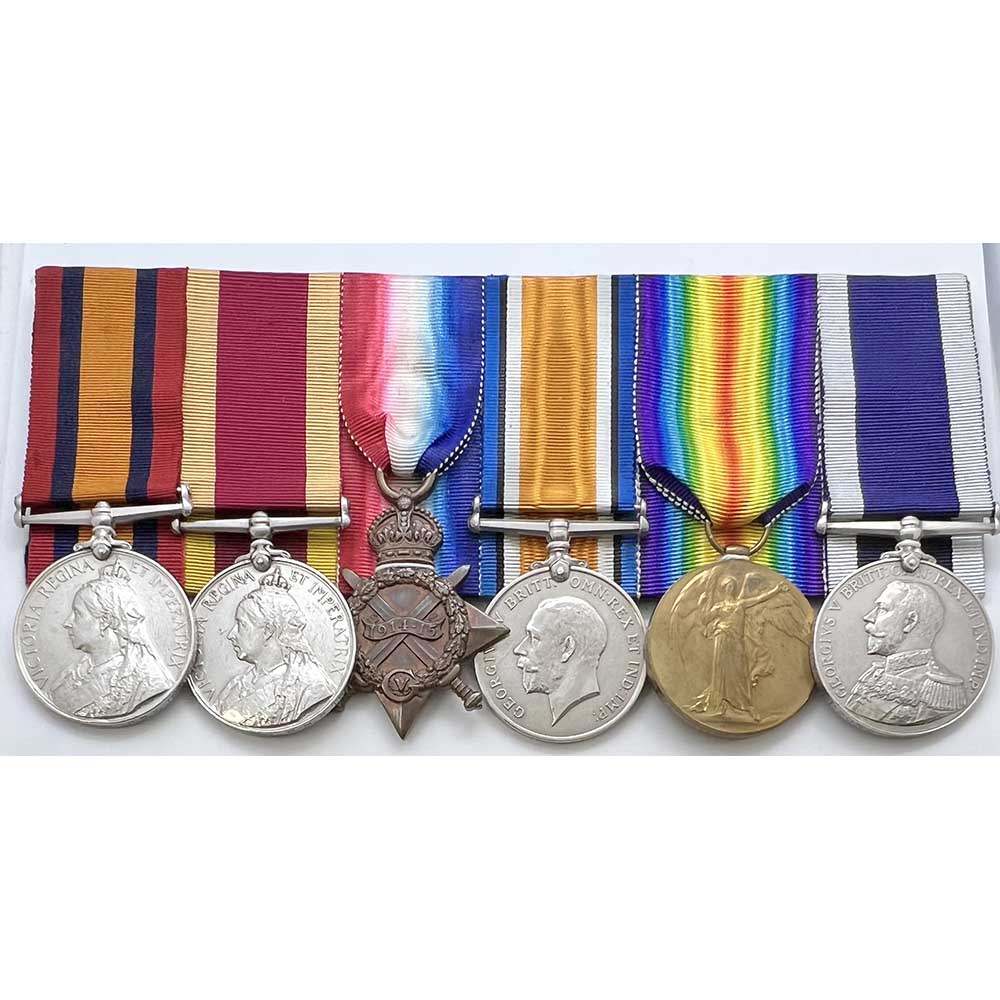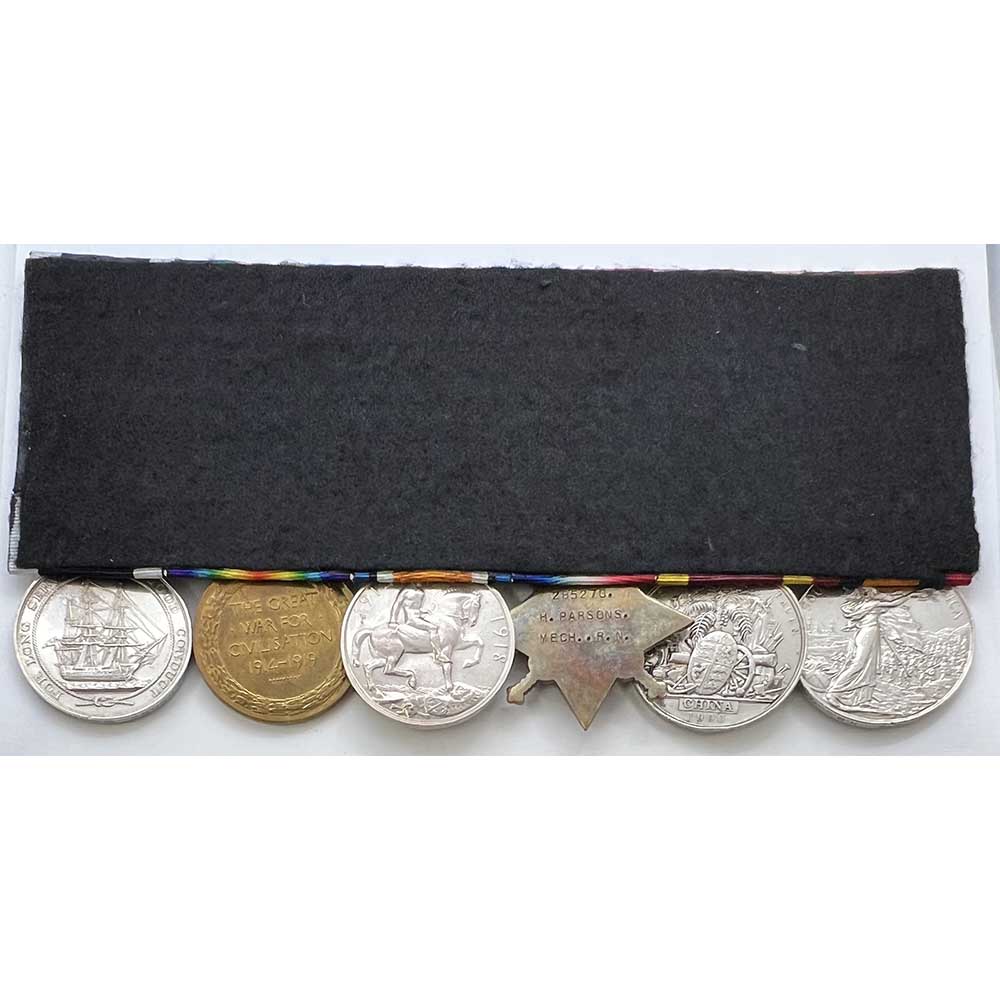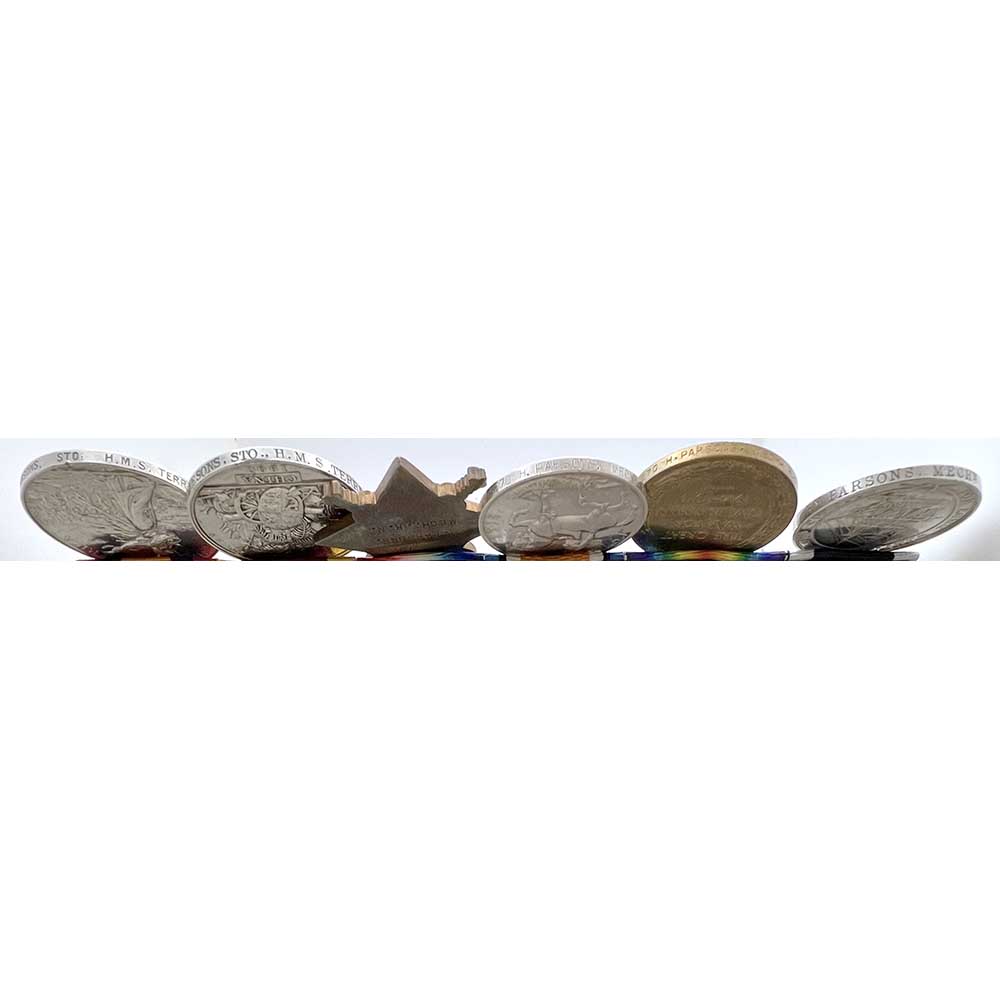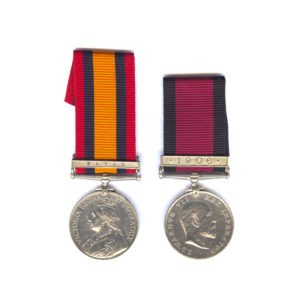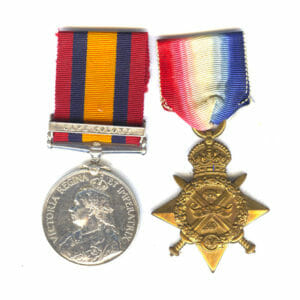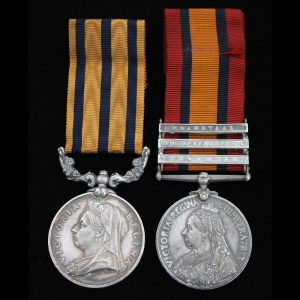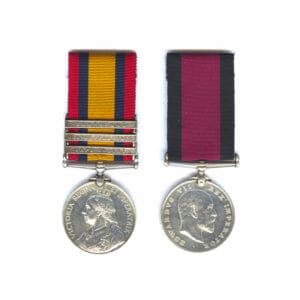Description
Queen’s South Africa Medal, China 1900, 1914-15 Star Trio, Naval Long Service and Good Conduct, GV, Harry Parsons, Stoker and Mechanician, HMS Terrible, Royal Navy.
QSA officially impressed: “H. Parsons. Sto: H.M.S. Terrible.”
China officially impressed: “H. Parsons. Sto., H.M.S. Terrible”
WW1 Trio all named as a Mechanician, Royal Navy
RNSLC Officially impressed: “Harry Parsons, Mechn H.M.S. Hercules”
Medals all display mounted, general contact marking through wear during a long career.
Harry Parsons was born on 25th January 1875 in Enmore Green, Dorset.
Having been a Labourer, he joined the Royal Navy on 27th April 1897 at HMS Victory II.
His first ship’s posting was HMS Terrible, which he joined as a Stoker 2nd Class on 24th March 1898.
Advanced to Stoker very quickly by 1st May 1898.
He served on board until 25th October 1902, taking part in both the Boer War in South Africa and 3rd China War, the Boxer Rebellion.
By 22nd October 1903, he was advanced to Leading Stoker 2nd Class on HMS Minotaur, 1 year later he was again promoted to Leading Stoker 1st Class at HMS Boscawen II on 22nd October 1904.
Following another 2 years he was made Stoker Petty Officer of HMS Good Hope on 1st July 1906.
During 1909 on HMS Indomitable he became a Mechanician.
After some time on HMS Fisgard, Hampshire and Prince George, On 29th July 1911 he joined the newly commissioned Colossus Class Battleship, HMS Hercules, as a member of her original crew.
He would serve on the ship since its beginning until 20th July 1917 seeing much action.
On 22nd March 1913 she collided with and damaged the SS Mary Parkes of Glasgow in Portland Harbour during a gale.
Before the war began between 17th and 20th July 1914 the Hercules took part in a test mobilisation and fleet review incase of the impending war.
On 31st May 1916, the Hercules took part in the famous Battle of Jutland, under the command of Captain Lewis Clinton-Baker, during the early stage of the battle she was straddled by 5 shells fired by a German Dreadnought at 18:16, shortly afterwards she would fire at the crippled Light Cruiser SMS Wiesbaden, soon afterwards firing 7 or 8 salvoes at a German Dreadnought.
Following further engagement during the battle including landing 2 probable hits on SMS Seydlitz causing some damage and flooding she was forced away to avoid several torpedoes which were lucky to pass closely by.
On 26th July 1917 he was transferred to HMS Victory II, his next ship posting being HMS Diligence (Speedy) from 25th July 1918 until 21st February 1919.
He was demobilised after the war from HMS Victory II on 28th June 1919, having completed over 22 years of service to the Royal Navy.
